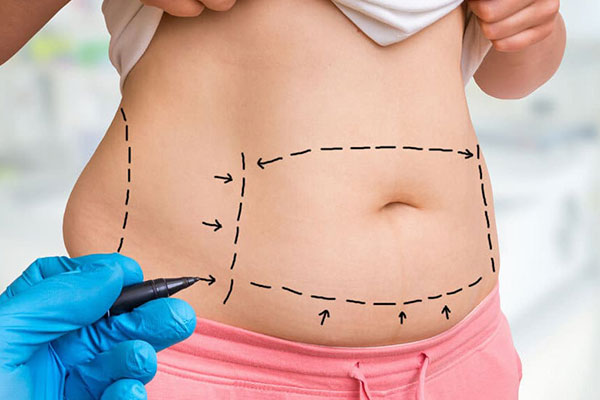What is Propolis Good For?
Complete Science-Based Health Guide 2024
Understanding Propolis: Nature’s Powerful Health Protector
Propolis, often called “bee glue,” is a remarkable resinous substance that honey bees create by mixing plant resins, beeswax, and their natural enzymes. This sticky compound serves as both a building material and antimicrobial shield for beehives, but its benefits extend far beyond the hive.
With over 500 bioactive compounds including flavonoids, phenolic acids, and essential oils, propolis has been used medicinally for thousands of years. Modern research confirms what ancient civilizations knew: propolis offers powerful health benefits for humans.
Key Propolis Facts
- Contains 500+ bioactive compounds
- Used medicinally for 4,000+ years
- Antimicrobial, anti-inflammatory properties
- Rich in flavonoids and phenolic acids
Propolis Composition Breakdown
Proven Health Benefits of Propolis
Antimicrobial Protection
Fights bacteria, viruses, and fungi with powerful natural compounds
Wound Healing
Accelerates tissue repair and reduces healing time by up to 30%
Immune Support
Enhances immune function and natural defense mechanisms
Diabetes Management
Clinical studies show propolis can significantly reduce blood glucose levels and improve insulin sensitivity. Research indicates a 25mg reduction in fasting blood sugar and 0.5% decrease in HbA1c levels in Type 2 diabetes patients.
Learn more about natural diabetes management in our comprehensive guide on healthy weight management and specialized nutrition plans.
Cardiovascular Health
Propolis supports heart health through its antioxidant properties and ability to reduce inflammation. Studies show it may help lower blood pressure and protect against ischemia-reperfusion injury.
- Reduces oxidative stress in blood vessels
- May help lower blood pressure naturally
- Protects heart tissue from damage
Respiratory Health
Propolis shows promise in treating respiratory conditions including upper respiratory infections, bronchitis, and even supporting recovery from viral infections like COVID-19.
For respiratory health support, explore our natural remedies including tahini for cough relief and throat infection management.
Scientific Research & Clinical Evidence
Clinical Trial Effectiveness Ratings
Key Clinical Studies
Diabetes Management Study
Published in Clinical Diabetology, 2024
A 90-day randomized controlled trial with 94 Type 2 diabetes patients showed significant improvements in HbA1c, insulin levels, and inflammatory markers with 1000mg daily propolis supplementation.
Results: 0.5% HbA1c reduction, 25mg/dL glucose decrease
Wound Healing Research
Published in PMC, 2023
Multiple studies demonstrate propolis reduces healing time by 30%, increases wound contraction, and stimulates tissue repair through anti-inflammatory and antimicrobial actions.
Results: 30% faster healing, reduced scar formation
Dosage Guidelines & Usage Recommendations
Recommended Daily Dosages
General Health Support
300-500mg daily (oral capsules or extract)
Immune System Boost
500-1000mg daily during illness or high-stress periods
Topical Applications
Apply 5-10% propolis ointment 2-3 times daily
Tincture/Liquid Extract
15-30 drops, 2-3 times daily
Forms of Propolis
-
Capsules/Tablets: Most convenient for daily use
-
Liquid Extract: Fast absorption, customizable dosing
-
Topical Ointments: For wound healing and skin conditions
-
Throat Sprays: For respiratory and oral health
Best Time to Take Propolis
Morning
With breakfast for immune support
With Meals
Reduces stomach irritation
Evening
For healing and recovery
Pro Tips for Maximum Benefits
- Start with lower doses and gradually increase
- Take with vitamin C to enhance absorption
- Choose standardized extracts for consistent potency
- Store in cool, dry place away from sunlight
Safety Guidelines & Potential Side Effects
General Safety
✓ Generally Safe For
- • Healthy adults (18+ years)
- • Short-term use (up to 10 months)
- • Topical applications
- • Doses under 1000mg daily
Who Should Avoid Propolis
⚠ Avoid If You Have
- • Bee or pollen allergies
- • Asthma or respiratory conditions
- • Eczema or sensitive skin
- • Bleeding disorders
- • Pregnancy or breastfeeding
Potential Side Effects
Mild Side Effects
- • Stomach upset
- • Skin irritation
- • Mild headache
- • Nausea
Moderate Reactions
- • Allergic skin reactions
- • Mouth ulcers (oral use)
- • Digestive discomfort
- • Contact dermatitis
Serious Reactions
- • Severe allergic reactions
- • Breathing difficulties
- • Swelling (face, throat)
- • Increased bleeding risk
Important Drug Interactions
Blood Thinners
Propolis may increase bleeding risk when combined with warfarin, aspirin, or other anticoagulants.
CYP450 Substrates
May affect liver metabolism of statins, immunosuppressants, and antidepressants.
Always consult your healthcare provider before starting propolis, especially if you take medications or have health conditions.
Propolis vs Other Natural Health Products
| Property | Propolis | Honey | Bee Pollen | Royal Jelly |
|---|---|---|---|---|
| Antimicrobial | ||||
| Wound Healing | ||||
| Immune Support | ||||
| Antioxidant Power | ||||
| Bioactive Compounds | 500+ | 180+ | 250+ | 185+ |
Why Choose Propolis?
While all bee products offer unique benefits, propolis stands out for its exceptional antimicrobial and wound-healing properties. Its diverse composition of over 500 bioactive compounds makes it particularly effective for:
- Comprehensive immune system support
- Powerful antimicrobial protection
- Advanced wound healing capabilities
- Strong anti-inflammatory effects
Frequently Asked Questions
Propolis is excellent for multiple health applications:
- Antimicrobial protection: Fights bacteria, viruses, and fungi naturally
- Wound healing: Accelerates tissue repair and reduces healing time by up to 30%
- Immune system support: Enhances natural defense mechanisms
- Diabetes management: May help reduce blood sugar and improve insulin sensitivity
- Respiratory health: Supports treatment of upper respiratory infections
- Oral health: Helps prevent gum disease and oral infections
For more natural health solutions, explore our guides on tahini for skin health and ginger for wellness.
Recommended daily dosages vary by purpose:
For General Health:
- 300-500mg daily (capsules)
- 15-30 drops (liquid extract)
- Take with meals to reduce stomach irritation
For Specific Conditions:
- Immune support: 500-1000mg daily
- Diabetes management: 1000mg daily (clinical studies)
- Topical use: 5-10% ointment, 2-3 times daily
⚠️ Always start with lower doses and consult your healthcare provider, especially if you have allergies or take medications.
Propolis is generally safe for healthy adults, but certain groups should avoid it:
❌ Avoid If You Have:
- Bee or pollen allergies
- Asthma or respiratory conditions
- Eczema or sensitive skin
- Bleeding disorders
- Pregnancy or breastfeeding
✅ Generally Safe For:
- Healthy adults (18+ years)
- Short-term use (up to 10 months)
- Topical applications
- Doses under 1000mg daily
Common side effects include mild stomach upset, skin irritation, or headache. Serious allergic reactions are rare but possible.
While both are bee products, they have distinct differences:
| Aspect | Propolis | Honey |
|---|---|---|
| Source | Plant resins + bee enzymes | Flower nectar + bee enzymes |
| Primary Use | Medicinal/therapeutic | Food/sweetener |
| Bioactive Compounds | 500+ | 180+ |
| Antimicrobial Power | Very High | Moderate |
Propolis is specifically designed by bees for protection and healing, making it more therapeutically potent than honey for medicinal purposes.
Yes, clinical research shows promising results for diabetes management:
Clinical Study Results:
- 0.5% reduction in HbA1c levels
- 25mg/dL decrease in fasting blood sugar
- Improved insulin sensitivity
- Reduced inflammatory markers
How it works:
- Inhibits intestinal α-glucosidase activity (slows carbohydrate absorption)
- Stimulates β-cells in pancreas to increase insulin secretion
- Reduces oxidative stress and inflammation
- Improves glucose metabolism at cellular level
⚠️ Typical study dosage: 1000mg daily for 90 days. Always consult your doctor before using propolis for diabetes management.
For comprehensive diabetes management, also consider our guides on healthy weight management and proper nutrition planning.
Timing can optimize propolis effectiveness:
Morning (7-9 AM)
With breakfast for immune support and all-day protection
With Meals
Reduces stomach irritation and improves absorption
Evening (6-8 PM)
For healing and recovery during sleep
Pro Tips for Maximum Absorption:
- Take with vitamin C (enhances flavonoid absorption)
- Avoid taking with caffeine (may reduce absorption)
- Split daily dose if taking >500mg (morning and evening)
- Take on empty stomach for faster absorption (if no irritation)
- Maintain consistent timing for optimal blood levels
Related Health Guides
Tahini for Skin Health
Discover natural skin benefits of tahini with proven recipes and scientific evidence.
Natural Cough Remedies
Evidence-based guide to tahini’s respiratory benefits and anti-inflammatory properties.
Advanced Skin Treatments
Professional solutions for skin pore treatment with 30-70% improvement rates.
Ginger Health Benefits
Scientific guide to ginger’s therapeutic properties and evidence-based applications.
Breastfeeding Health
Safe treatment options for throat infections during nursing with expert guidance.
Specialized Nutrition
Professional meal planning for extreme nutrition goals with safety protocols.
The Bottom Line on Propolis
Propolis stands out as one of nature’s most powerful therapeutic compounds, with over 500 bioactive ingredients offering comprehensive health benefits. From antimicrobial protection to wound healing and immune support, the scientific evidence strongly supports its traditional medicinal uses.
Whether you’re looking to boost your immune system, manage diabetes naturally, or accelerate wound healing, propolis offers a evidence-based natural solution backed by thousands of years of use and modern clinical research.
Key Takeaways
- 500+ bioactive compounds for comprehensive health support
- Proven antimicrobial and wound healing properties
- Safe for most adults at 300-500mg daily dosage
- Strong scientific evidence from clinical trials
- Avoid if you have bee allergies or bleeding disorders






